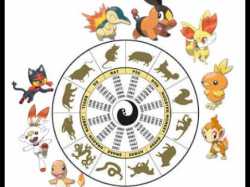>>49063804I agree with the Zodiac theory, but the probability argument here is dubious.
"1000 animals" is totally arbitrary of course, but you know that and are even being generous with a low number etc. etc. But consider that there is no reason to assume that the probability of each animal is anywhere close to equal.
Human designers would naturally tend to pick animals which are more significant in human experience & culture, even when they are trying to make interesting choices. This is more or less the same reason we have the actual Zodiac animals we have in the first place.
Consider:
Some domestic animals off the top of my head: dogs, cats, horses, pigs, cows, chickens, sheep, goats, camels...
Some cosmopolitan mammal families (example or common name in brackets):
soircids (shrews)
sciurids (squirrels, chipmunks)
cricetids (hamsters, voles, lemmings)
cervids (deer)
ursids (bears)
felids (cats)
mustelids (weasels, badgers)
bovids (cows, oxen)
murids (rats)
canids (dogs, wolves, foxes)
leporids (rabbits)
So many families of birds or insects have not inspired a Pokemon, but I think you could name one or several instances of Pokemon for the animal groups named above. Note that creatures less important to us tend to be referred to in a more generalized way, e.g. snakes, lizards, frogs, fish, "bugs"... with some exceptional standouts commonly known.
My point being: Zodiac animals are significant creatures in human life/culture and I would not expect them to have the same probability to occur as lampreys or whatever.
A better probabilistic argument would be: check all Pokemon (~1000 funnily enough) and determine which could be considered Zodiac-ish and which not, then knowing the overall odds look at some sort of binomial thing wrt the Fire starters.

